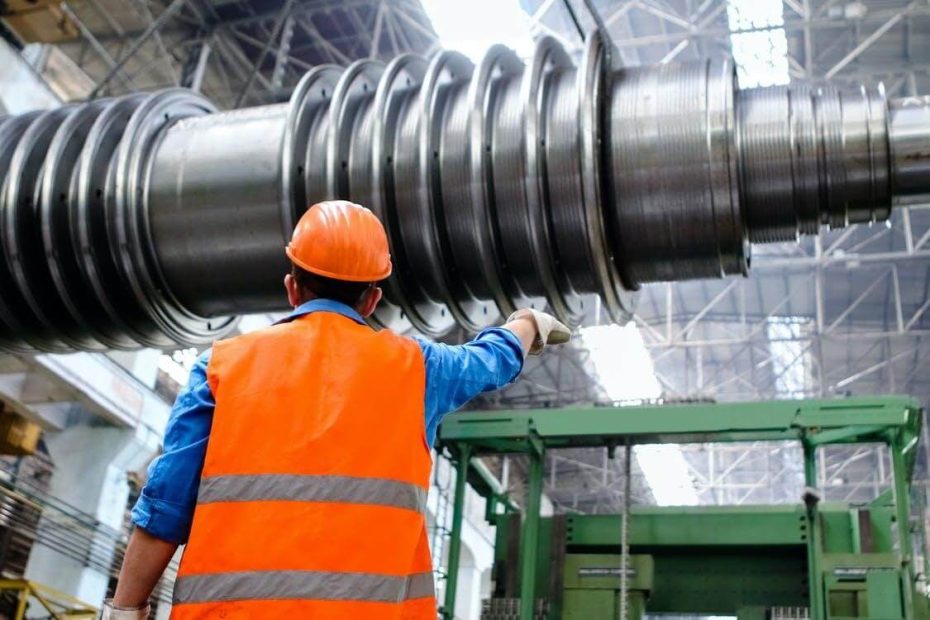Hybrid cloud has become an integral component of manufacturing ever since the revolution of Industry 4.0. The Covid-19 Pandemic was paramount in the upgrades in the industry where manufacturing and industry processes needed to be automated more than ever since demands were still high but supplies were short. Without the matured cloud computing systems we have today, this automation would be next to impossible, and the hybrid cloud has played the most important part in AI integration and machine learning processes required to bring forth the revolution.
What Is Industry 4.0?
Industry 4.0, which is sometimes referred to as Smart Manufacturing, signifies the fourth industrial revolution, which revolves around the use of cyber-mechanics for changing the process of manufacturing as we know it. In industry 4.0, cloud computing, Smart Factories, the Internet Of Things, and Cyber-Physical systems are utilized to deliver real-time decisions while increasing the productivity of manufacturing systems. The systems are now more flexible and agile than ever as much of the human error involved in these mechanical processes has now been eliminated.
Unlock the future of intelligent applications with our cutting-edge Generative AI integration services!
3D Printing is everywhere now, and it is a crucial component of Industry 4.0; 3d printers and other electronic products that help with the manufacturing processes are now equipped with high-functioning AI systems that supplement the industry. Computer-Aided Design and engineering (CAD, CAE) are also common in the new revolution where product innovation is at its peak.
There are two key reasons why Industry 4.0 is accelerating in the way it is:
- Consumers want high-quality products that are personalized as well as available immediately
- Geographical restrictions are becoming a thing of the past, and digitized manufacturing processes get rid of this problem to a large extent.
How Does AWS Hybrid Cloud Help?
AWS is one of the most popular and widely-used cloud services in the world. In fact, AWS has been overtaking both Microsoft Azure and Google Cloud Services for the past few years. Naturally, when it comes to the utilization of hybrid computing for this new revolution, AWS has been front-and-center in providing its services.
First of all, AWS Hybrid Cloud has helped manufacturers find opportunities where they were running into dead ends before. There is only so much innovation that can come as a part of manual operations. AI was necessary for further ways to improve efficiency and manufacturing processes. Data-driven processes can greatly improve the system’s ability to repair and maintain itself while also reducing chances of breakdowns. AI and cloud systems also make use of predictive analytics, which can greatly improve the efficiency of systems, and as technology progresses, data analytics are only becoming that much more sophisticated.
Other than that, one of the most revolutionizing aspects of using hybrid clouds for manufacturing is the ability of manufacturers to view and manipulate data from remote locations. Dashboards can be compared, and all the data from every level of the enterprise is easily viewed from any location that has access to the relevant information. It is much easier to keep track of the smooth functioning of manufacturing processes this way, especially since intelligent systems can also pick up on discrepancies on their own.
AI systems and hybrid cloud also greatly increase the data visibility for all manufacturers where they are able to have a greater insight into their work. AI systems also ensure that manufacturers are able to view the relevant data, which makes data-based decisions easier for them to make. Not just manufacturers but even managers and operators have a certain level of visibility afforded to them where they can use the relevant data to supervise their work and make decisions efficiently.
The speed offered by AWS cloud is rivaled by no other so far. Therefore, smart factories are now able to run quicker than ever. Data operations are performed in the cloud, and processes are no longer held up by large volumes of data processing involved with each process.
With the establishment of microservices as components of most cloud systems, it is much quicker to update parts of the system now as well, and the entire manufacturing process does not need to be halted when a singular component and its dependencies are being updated through the cloud.
Hybrid clouds are also largely scalable, and this scalability has ensured that manufacturers are able to scale the cloud services according to their needs to adopt the processes. So industries don’t even have to shift altogether; they can easily go digital component by component.
Another massive reason that has been fueling cloud adoption in recent years has been the cost reduction it entails. It is just more affordable to hand over tedious businesses such as manufacturing processes to the cloud and let it deal with the nitty-gritty. When a large part of the infrastructure is shifted from being on-premises to online, there are massive savings racked up simply by cutting down on infrastructural costs.
While we can see how automation and cloud computing are benefiting manufacturing processes in the present, we need to understand how bright the future is for Industry 4.0. Cloud computing systems are usually incorporated with AI, which helps with the predictive elements of future technology. Machine learning is also incorporated, enabling the system to memorize patterns and quickly pick out discrepancies. So because of hybrid cloud computing, the manufacturing processes in Industry 4.0 will only get more efficient and quicker as time progresses.
Of course, AI integration in digitized manufacturing systems is mainly present in large-scale companies, and no medium business is likely to take advantage of it at present. However, as the technology becomes more common, we will see the revolution penetrate smaller manufacturing plants as well.
Conclusion
Hybrid cloud by AWS has been integral in letting manufacturing processes gain momentum in more digitized spaces. Smart manufacturing is the reality of Industry 4.0, and consumer needs are at the top-most priority since all consumers require immediate gratification. The future also looks bright for the manufacturing industry, where we hope that AI and Machine Learning become more common in manufacturing spaces and are able to improve efficiency as it has never been before.
Further blogs within this what cloud can do for Manufacturing category.




